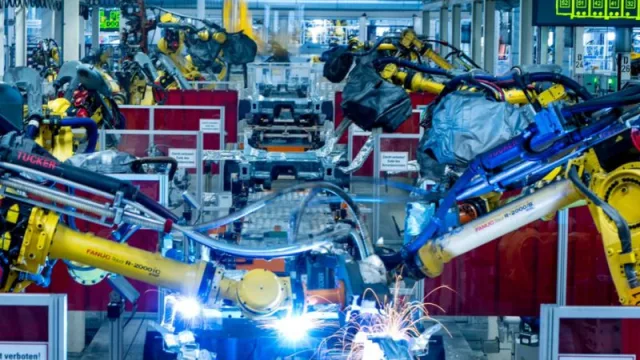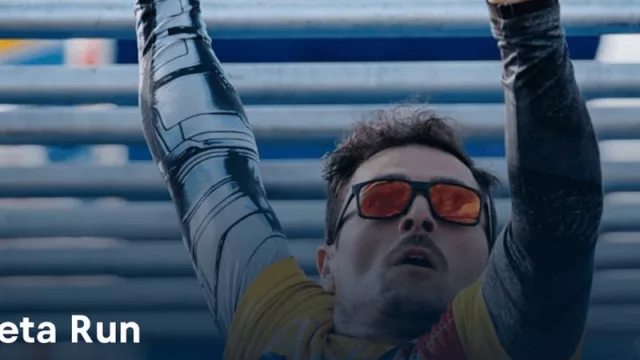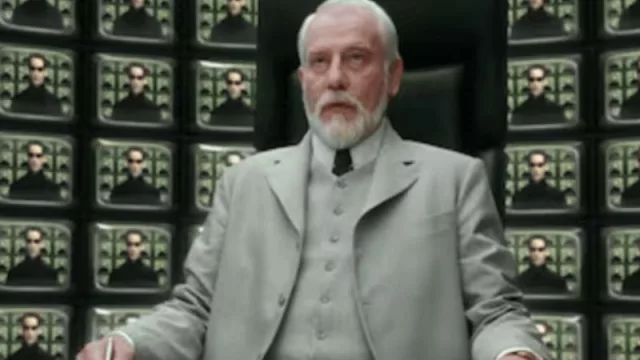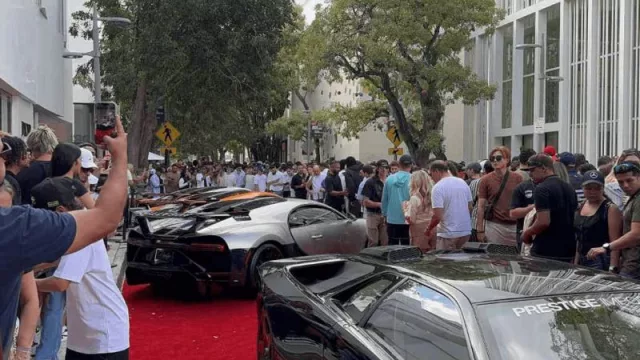Volkswagen claims that there is no error in its product offering, and while its marketing strategy is not explicitly mentioned, it’s clear that the company has focused its efforts on digital avenues rather than investing in a robust media plan that includes outdoor advertising, events, sponsorships, immersive experiences, and trade show activations. While many brands have increased their investment in experiential marketing, including collaborations in sports, initiatives in the culinary sector, and real estate projects, VW has opted for a predominantly online strategy, with minimal presence in traditional media.
Some questions arise: What automotive brand can afford to have low visibility in outdoor advertising and on the streets? If there really is no error in the product, has effective advertising been sufficient? Are the previously iconic models still perceived as such?
-
In an environment where the value of a car transcends mere functionality and becomes an emotional experience, the brand should be present in themed bars, amusement parks, conceptual restaurants, mega fairs, sponsorships of relevant events, toy lines, and interactive museums. As an industry leader, Volkswagen has made efforts in this direction, but has it been enough to enhance the product experience and the emotional connection with consumers?
What strategic mistakes is VW making that have led to self-denial? What isn’t being said in the press or in communications? At a time of crossing themes and expanded experiences, VW’s history offers a significant foundation to bolster its brand culture, yet over the past decade, this effort has not been incremental; rather, it has diminished compared to its German, Asian, European, and American competitors.
What should VW and all brands do, besides facing the rise of electric cars more aggressively in the traditional market? They must reinforce the brand identity experience through diverse actions: Volkswagen needs to reimagine its identity, focusing on sustainability and innovation, and added value. This could include campaigns highlighting its commitment to electric mobility and its positive environmental impact, along with its history, competitiveness, and relationship with sports, etc.
-
Emotional connection: In a saturated market, connecting emotionally with consumers is essential. The brand narrative must resonate with consumer aspirations, emphasizing values like family, adventure, friendship, entrepreneurship, and sustainability.
Make it fun, gamify, theme it: Show that not everything done in Asia within the automotive industry carries the imprint, mystique, or halo of a brand like VW, but for this to happen, it needs to invest significant time and resources into truly becoming an experiential brand.
-
Investment in technology: Investment in technology should not only focus on production but also on customer experience. Implementing advanced technologies in consumer interaction, such as intuitive mobile apps and personalization platforms, can enhance brand perception and foster loyalty.
Collaboration strategies: Establishing partnerships with tech startups and emerging companies in mobility can provide Volkswagen with a competitive edge. These collaborations can facilitate innovation and help the company stay ahead of market trends. Partnerships with other brands in fashion, toys, gastronomy, and entertainment should also be explored.
-
The importance of transparent communication: In times of uncertainty, effective communication is key. Volkswagen must adopt a transparency approach with its employees and consumers. This will not only help mitigate anxiety among workers but can also strengthen public trust in the brand. Remember, VW has a history of ethical mismanagement regarding the diesel engine scandal.
Summary: Key Points of the Volkswagen Crisis in Light of Market Demand Changes.
Current Context: The drop in sales of approximately 500,000 vehicles has led Volkswagen to rethink its operational structure.
-
Internal Reactions: Employee protests underscore the tension between management and the workforce.
Market Challenges: Competition from Tesla and Chinese manufacturers, along with a transition to electrification, presents significant challenges. The entry of Chinese brands into the European market has further complicated the situation.
-
The competition has intensified with the arrival of new players like Tesla and the pressure from Chinese manufacturers who have captured a significant share of the global market. The transition to electric vehicles (EVs) has altered the landscape, compromising profit margins and making innovation urgent.
Brand Strategies: The need to adapt to a changing environment has become a question of survival and competitiveness.
-
Imminent Future: Volkswagen has a limited timeframe to reverse its situation, demanding bold decisions.
-
Financial Challenges: The company is spending more than it earns, necessitating drastic changes.
-
Labor Protests: Workers are concerned and have begun to organize against the company's decisions.
-
Necessary Restructuring: Volkswagen must simplify its processes and reduce costs to adapt to the new market reality.
Challenges in the Market and the Future of VW
The reality is that Volkswagen is not the only brand facing these challenges. The entire European automotive industry is grappling with a slowdown in the transition to electric vehicles, exacerbated by reduced government incentives. With sales down by 20% compared to pre-pandemic levels, factories are operating under conditions that analysts deem unsustainable.
Volkswagen has achieved a production capacity of approximately 14 million vehicles, while its actual production was only 9 million last year. This gap not only impacts profitability but also raises critical questions about the sustainability of the current business model.
Brand Strategies: Adaptation and Resilience.
Urgency in Action: According to Arno Antlitz, CFO of Volkswagen, the company has a limited timeframe to reverse the situation
Reactions from Employees
The protests by employees during the assembly in Wolfsburg are a manifestation of the unrest prevailing within the company. Workers' representative Daniela Cavallo emphasized that employees should not bear the consequences of management's decisions. This conflict between management and the workforce reflects the struggle for a sustainable future in an increasingly volatile business environment.
The emotional impact of this situation cannot be underestimated. Neuroscience suggests that uncertainty can trigger anxiety and resistance to change, leading to decreased productivity and loyalty to the brand. Volkswagen must consider strategies that not only address operational efficiency but also strengthen organizational culture and emotional connection with its employees.
The Context of the Decision
-
The decline in sales, with figures approaching 500,000 vehicles, is symptomatic of deeper issues within the automotive industry. According to Arno Antlitz, VW's CFO, demand in Europe has not recovered since the pandemic, and deliveries are 2 million below pre-pandemic levels. This stagnation affects not only Volkswagen but the entire industry, which faces a radical transformation.
At this crossroads, Volkswagen must reevaluate its brand positioning. The shift towards electrification is not just a product issue; it involves a cultural and perceptual change. Neuromarketing strategies can play a crucial role here. Understanding how consumers make decisions and what factors influence their choices can help Volkswagen create a more appealing value proposition.
-
Volkswagen finds itself at a decisive moment. The combination of declining sales, employee pressure, and fierce competition poses significant challenges. However, with a clear strategy emphasizing adaptation, innovation, and effective communication, Volkswagen can not only survive but thrive in this new automotive era.
The road to recovery will not be easy, but the brand's history is filled with resilience and reinvention. Making the most of the time left to implement significant changes is crucial. VW's ability to navigate these turbulent waters will depend on its skill in listening to its employees, understanding its consumers, and adapting to a rapidly changing environment.
Volkswagen has a year, maybe two, to turn the situation around. The key lies in leveraging this time to implement strategies that not only address immediate needs but also lay the groundwork for a more sustainable and competitive future. The history of Volkswagen is at stake, and its ability to adapt will define its legacy in the automotive industry.
-
The situation is further complicated by rising operational costs and a volatile economic environment that has led the company to spend more than it earns. This financial imbalance has been a recurring topic in discussions between Volkswagen management and worker representatives.
Implications for Workers and Unionism
The news of factory closures has sparked a wave of concern among Volkswagen workers. Thorsten Gröger, negotiator for the IG Metall union, has labeled the company's strategy as "irresponsible," emphasizing that this decision could threaten thousands of jobs and jeopardize production plants. Unions are on high alert and do not rule out the possibility of strikes as a form of protest. Pressure on Volkswagen management is mounting, as employees demand guarantees about their jobs and a clear plan for the future.
¡Registrate sin cargo al newsletter, ahora, aquí!. (Click)
IG: @infonegociosmiami












Tu opinión enriquece este artículo: